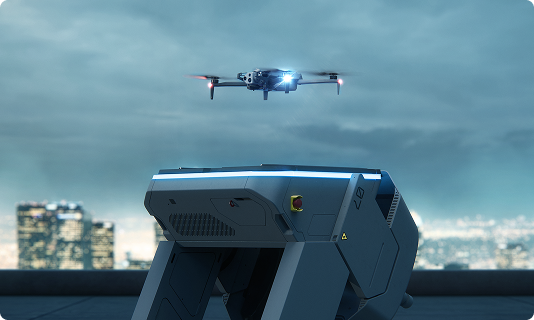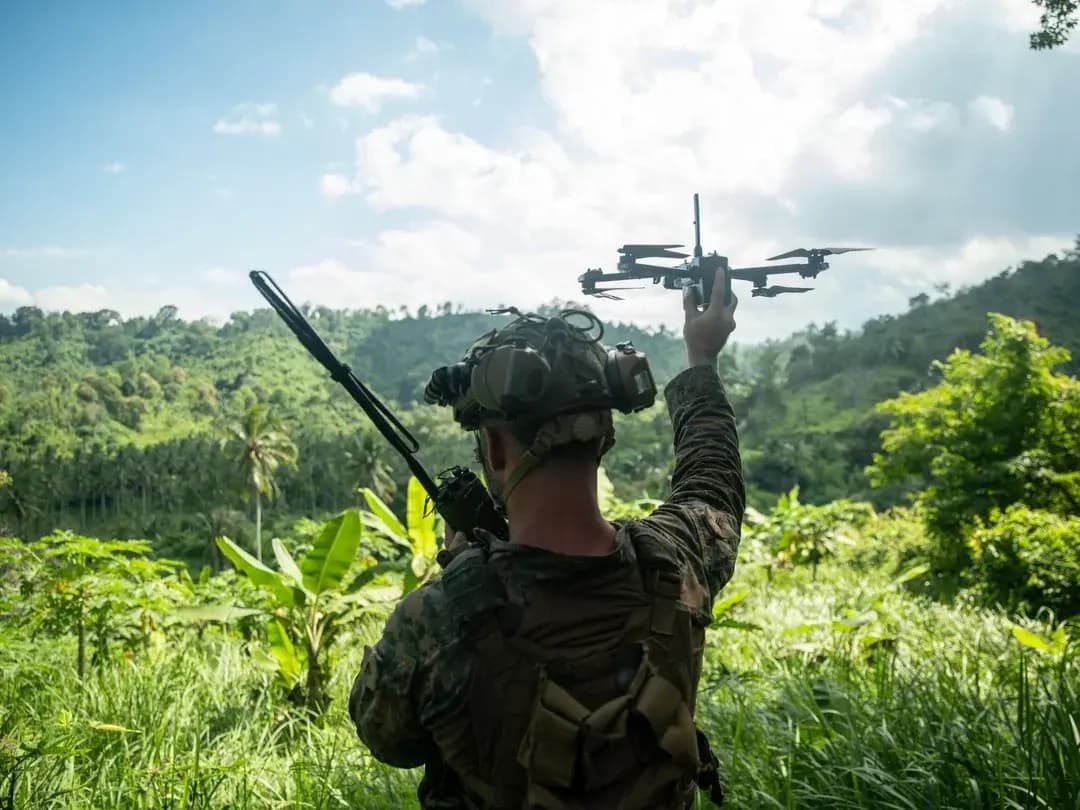Skydio Drones Used in Gaza Now Surveilling American Cities
In a significant development following the escalation of conflict in Gaza on October 7, 2023, Skydio, a California-based drone manufacturer, has reportedly shipped over 100 reconnaissance drones to Israel for use by the Israel Defense Forces (IDF). These drones, which have been utilized in military operations against Palestinian civilians, are now being deployed to monitor protests and public gatherings across various cities in the United States.
Key Details
Skydio has rapidly evolved from a relatively unknown entity to the largest drone manufacturer in the United States, achieving a valuation in the multi-billion dollar range. The company has established contracts with more than 800 law enforcement and security agencies nationwide, a significant increase from 320 contracts reported in March 2024. This expansion indicates a growing reliance on drone technology for surveillance, with Skydio drones being launched hundreds of times daily to monitor activities in urban areas.
Following the outbreak of violence in Gaza, Skydio sent more than 100 drones to the IDF, with indications that additional shipments may have occurred since that initial delivery. The exact number of subsequent shipments remains undisclosed. Skydio maintains an office in Israel and collaborates with DefenceSync, a local military contractor that facilitates the procurement of drones for the IDF. Furthermore, the company has secured substantial investments from Israeli-American venture capitalists and funds with significant stakes in Israeli enterprises, including Marc Andreessen"s firm, Andreessen Horowitz.
In the past 18 months, nearly every major American city has entered into contracts with Skydio for drone surveillance. Notable cities that have adopted Skydio drones include Boston, Chicago, Philadelphia, San Diego, Cleveland, and Jacksonville. These drones have been deployed by city police departments to gather intelligence during protests, such as the "No Kings" protests, and were also utilized by Yale University to monitor an anti-genocide protest camp established by students.
In Miami, Skydio drones are reportedly being used to surveil spring break festivities, while in Atlanta, the Atlanta Police Foundation has partnered with Skydio to install a permanent drone station at the new Atlanta Public Safety Training Center. Additionally, Detroit has invested nearly $300,000 in acquiring 14 Skydio drones, as documented in a city procurement report. U.S. Immigration and Customs Enforcement (ICE) recently purchased an X10D Skydio drone, which features automatic tracking capabilities, and U.S. Customs and Border Protection has acquired 33 of the same model since July 2024.
The advanced artificial intelligence system powering Skydio drones is equipped with Nvidia chips, allowing for autonomous operation without direct human control. These drones are outfitted with thermal imaging cameras and can function effectively in environments where GPS signals are unavailable, known as "GPS-denied environments." They are capable of reconstructing buildings and other structures in three-dimensional formats and can achieve speeds exceeding 30 miles per hour.
The New York Police Department (NYPD) has been an early adopter of Skydio drones, reporting over 20,000 drone flights in less than a year, averaging approximately 55 flights per day across the city. As of last year, the NYPD was operating 41 Skydio drones, and recent changes in Federal Aviation Administration regulations are expected to further increase the number of drones in operation.
Background
The use of surveillance drones has raised concerns regarding civil liberties and the potential for invasive monitoring of citizens. The deployment of drones that have been battle-tested in conflict zones adds another layer of complexity to the ongoing debate about the ethical implications of such technology in domestic settings.

Image for Skydio drones used in Gaza now surveilling American cities
What"s Next
The increasing prevalence of Skydio drones in American cities highlights a trend towards greater reliance on aerial surveillance technology by law enforcement agencies. As cities continue to adopt these tools, the implications for privacy and civil rights will likely remain a contentious issue, prompting calls for regulatory oversight and public discourse on the appropriate use of drone technology in civilian contexts.
For further insights into related developments, see our coverage on AI-powered drones used by IDF in Gaza now tracking protestors in U.S..

![[Video] Iranian security forces injure woman in Mashhad; death toll exceeds 3,000](/_next/image?url=%2Fapi%2Fimage%2Fthumbnails%2Fthumbnail-1768338642591-z7mptn-thumbnail.jpg&w=3840&q=75)
![[Video] Federal agents drop tear gas canisters from moving vehicles in neighborhood](/_next/image?url=%2Fapi%2Fimage%2Fthumbnails%2Fthumbnail-1768336360849-hrwza-thumbnail.jpg&w=3840&q=75)
![[Video] Protesters surround federal agents at Target in Minneapolis](/_next/image?url=%2Fapi%2Fimage%2Fthumbnails%2Fthumbnail-1768331517834-1384td-thumbnail.jpg&w=3840&q=75)



![[Video] Gunfire between Iraqi security forces and Sadr militias in Baghdad](/_next/image?url=%2Fapi%2Fimage%2Fthumbnails%2Fthumbnail-1768343508874-4redb-thumbnail.jpg&w=3840&q=75)
